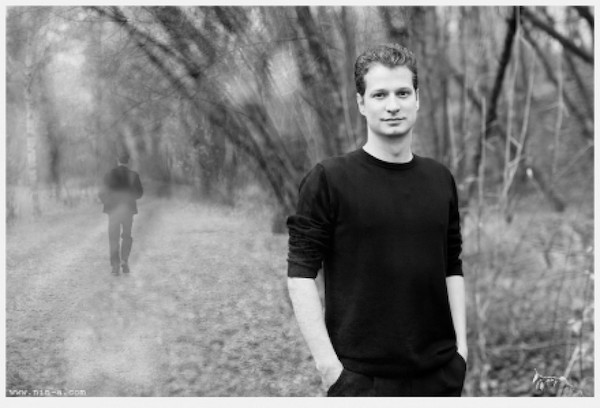Death becomes Chamber Music Society program

Nikolay Borchev performed Mussorgsky’s “Songs and Dances of Death” with the Chamber Music Society of Lincoln Center on Sunday.
It was three weeks after Halloween, but Death still topped the bill Sunday afternoon in Alice Tully Hall, as the Chamber Music Society of Lincoln Center let Mussorgsky and Schubert have the last word.
Death menacing, Death seductive, Death comforting, Death triumphant—all strode the stage in the person of baritone Nikolay Borchev, sensitively (if sometimes tepidly) supported by pianist Wu Qian in Mussorgsky’s Songs and Dances of Death.
The program’s second half was devoted to Schubert’s tiny masterpiece, the song “Der Tod und das Mädchen” (Death and the Maiden) and the equally masterful String Quartet in D minor, D. 531, in which the song’s melody plays a pivotal role. Borchev and Wu returned briefly to deliver the song, followed by the Schumann Quartet—brothers Erik, Ken, and Mark Schumann playing violins and cello respectively, with violist Liisa Randalu—in a brisk rendition of the iconic chamber work.
The program got under way with perhaps the only works by Rachmaninoff that are not somehow haunted by death, a pair of agreeable movements for string quartet that he composed at age 17. A fashionable Russian melancholy colored the falling phrases of the first piece, and the scherzo-like second had flickers of wit, especially in its coda.
In the Schumann Quartet’s performance, one was aware of the young man’s diligent study of counterpoint at the Moscow Conservatory, the melodic influence of Tchaikovsky (without that composer’s ability to generate dramatic tension), and the Romantic chamber-music style of Robert Schumann (without his ability to make constant repetition of short figures interesting). The pieces were at least worth a listen as a reminder that great composers aren’t born that way, but find their voice over time.
Mussorgsky, on the other hand, knew exactly what he was after in his arresting song cycle on death. Borchev’s performance Sunday, in a frank, forward-placed voice with minimal vibrato, captured the composer’s uncompromising take on Golenishchev-Kutuzov’s dark poems.
Because the baritone had more than enough power to make himself heard in the modest-sized hall, one wished pianist Wu had projected her part more to interact with his, instead of dropping down into “accompanist” mode whenever he was singing. But this discrepancy became less as the four-song cycle traced its rising arc from the softly scary “Lullaby” to the horrendous battlefield scenes of “The Field Marshal.”
After intermission, the pair gave a somber reading of “Death and the Maiden,” chilling in its final diminuendo.
The next music one heard (after a lot of repositioning of piano and furniture) was the stark exclamations that open the D minor Quartet, kicking off a performance that seemed to emphasize not death’s gentle embrace but its inexorable momentum.
Playing with precise ensemble and a tense, wiry tone even in pianissimo passages, the quartet bypassed opportunities to relax the pace, such as the opening movement’s second theme or the scherzo’s trio, that would have given the harder-driving sections more impact.
Nevertheless, the group’s well-balanced sound and shapely phrasing made for a very presentable rendering of Schubert’s great work. More variety of tone color would have given it an extra dimension, especially in the Andante con moto, whose variations (as often happens in Schubert performances) tended to sound merely decorative without the shadings that give each one its particular character.
The final Presto wasn’t quite as rhythmically firm as the other movements, but it did make for a fierce conclusion to cap this group’s driven concept of the piece. The audience responded enthusiastically to their polished and energetic performance.
The Chamber Music Society of Lincoln Center will present music for wind instruments by Reicha, Thuille, Copland and Mozart, 7:30 p.m. Nov. 30 at Alice Tully Hall. chambermusicsociety.org; 212-875-5788.


